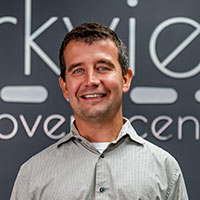Drug addiction creates powerful withdrawal symptoms that can make it nearly impossible to get through without help from a medication-assisted treatment program. Treating drug addiction with more drugs may seem unorthodox, and some family members may not understand how that is possible. Talking with your family about how a pharmacotherapy treatment program can reduce withdrawal symptoms and cravings can be difficult if they don’t understand how it works.
At Arkview Recovery Center, our medication-assisted treatment program is available to patients whose withdrawal symptoms are getting in the way of their addiction recovery. We can help your family better understand addiction and how medication-assisted treatment can help through our family therapy. If you or a loved one wants to quit but withdrawal symptoms are too intense, call 717.744.0756 or complete our online form today to learn about our medication-assisted treatment program and how it can help you start your road to recovery.
How Can Medication-Assisted Treatment Help with Drug Addiction
The Federal Food & Drug Administration has approved several effective drugs to help reduce withdrawal symptoms and cravings for opioids, heroin, meth, prescription drugs, and alcohol. When combined with behavioral and other types of therapy, medication-assisted therapy is very beneficial in helping patients regain control of their lives and maintain their recovery.
Medication-assisted treatment and therapy (MAT) can help people:
- Stay focused on their recovery
- Regain control of their lives and start rebuilding relationships
- Reduce chances of relapse
- Decrease the risk of contracting other diseases
Talking with Your Family About a Medication-Assisted Treatment Program
Families dealing with a child or relative struggling with substance abuse have many misconceptions about treating drug abuse with other drugs. Many people still see addiction as a social disease and not a mental health disorder.
To help your family understand the benefits of an MAT program, talk with your family about the common misconceptions about medication-assisted treatment and explain to them how beneficial it can be. Be sure to inform them that:
- MAT is not trading one drug for another. MAT helps reduce the symptoms of withdrawal and allows the patient to work on their therapy or keep up with their daily commitments while continuing with their addiction treatment. It is not replacing one high with another. MAT can block the euphoric feelings that drugs and alcohol can produce.
MATs goal is a drug-free life. Many families think that once you start an MAT program, you are on it for life. The goal of any addiction treatment program is a life free of drugs and alcohol. As you progress through your treatment, medical staff will update your treatment and slowly reduce your need for the drugs.
MAT is only for severe addiction. MAT can help everyone with a substance abuse problem, no matter their level of addiction.
MAT is not real recovery. A medication-assisted treatment program is an evidence-based, scientifically proven method for treating addiction with a higher success rate over those who do not participate in an MAT program.
Addiction is different for every patient. A medication-assisted treatment program may not be right for everyone. It will take an evaluation by a team of trained medical professionals and therapists to determine the best course of action for your addiction recovery.
Arkview Recovery Center Has the Medication-Assisted Treatment Program for Your Addiction Treatment
At Arkview Recovery Center, family therapy is a part of our well-rounded treatment options. We can help answer any questions your family has about medication-assisted treatment and how addiction affects the mind and body. By getting your family involved with your addiction therapy, you create a stronger support system that will help you maintain your sobriety for life.
If you are considering enrolling in an addiction treatment program but have questions, call 717.744.0756 or complete our online form today to connect with our caring staff about how a medication-assisted treatment program can help.

Kyle is Lead Therapist at Arkview Recovery Center. He holds a Master of Social Work degree from Temple University and is a Licensed Clinical Social Worker. He has years of experience working directly with individuals who suffer from addiction and mental health disorders. Being in long term recovery himself, Kyle is very passionate about the recovery process. He is heavily involved in the local recovery community in which he enjoys his commitments to service and giving back. His specialty is in group therapy and developing clinical staff. Kyle brings to Arkview a holistic approach to recovery, specializing in mindfulness, reality therapy, and solution-focused therapy.







